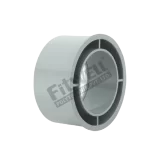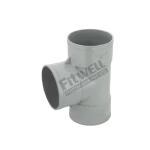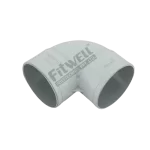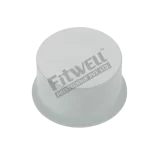CPVC Pipes and Fittings: A Guide to Industrial Plumbing Solutions
Introduction
When it comes to industrial plumbing, the choice of materials can make a significant difference in terms of system efficiency, safety, and longevity. CPVC (Chlorinated Polyvinyl Chloride) pipes and fittings have become a popular choice in various industrial applications, thanks to their strength, chemical resistance, and versatility. In this guide, we will explore the benefits of using CPVC pipes in industrial settings and why they are the go-to solution for demanding plumbing requirements.
Why CPVC Pipes Are Ideal for Industrial Plumbing
CPVC pipes are known for their robust characteristics that make them suitable for a wide range of industrial plumbing applications. Unlike traditional materials like metal or regular PVC, CPVC offers enhanced durability and flexibility to handle the challenging conditions of industrial environments. Here’s why CPVC pipes are increasingly favored in industrial plumbing:
- High-Temperature Tolerance: CPVC pipes can withstand high temperatures, often up to 200°F (93°C), making them ideal for transporting hot liquids, steam, and other industrial fluids.
- Superior Chemical Resistance: Unlike metal pipes that corrode when exposed to aggressive chemicals, CPVC pipes resist a wide variety of acids, alkalis, and other chemicals commonly found in industrial processes.
- Versatility: CPVC pipes come in various sizes and are compatible with a range of fittings, allowing for the construction of complex industrial piping systems tailored to specific operational needs.
- Cost-Effectiveness: While the initial cost of CPVC pipes may be slightly higher than other materials, their longevity and minimal maintenance requirements translate to significant cost savings over time.
Key Features of CPVC Pipes for Industrial Use
Understanding the key features of CPVC pipes is essential when selecting the right plumbing solution for your industrial setting. Here are the main characteristics that make CPVC an excellent choice:
1. Durability
CPVC pipes are designed to endure the rigors of industrial use. Their tough, impact-resistant structure makes them suitable for environments where pipes are subject to physical stress, high pressure, and temperature variations.
2. Chemical Compatibility
CPVC pipes are compatible with a broad spectrum of industrial chemicals, including acids, alkalis, and alcohols. This compatibility reduces the risk of pipe damage and contamination, ensuring a safer and more reliable transport system for chemicals and other fluids.
3. Ease of Installation
CPVC pipes and fittings are lightweight and easy to handle, making installation faster and more cost-effective. They can be joined using solvent cement, creating a leak-proof and durable connection without the need for welding or threading.
4. Fire Resistance
In industries where fire safety is a concern, CPVC pipes offer an added layer of protection. They are inherently flame-retardant and have a high flashpoint, meaning they do not easily catch fire or propagate flames.
Applications of CPVC Pipes in Various Industries
CPVC pipes are versatile and suitable for a wide range of applications in various industries:
1. Chemical Processing Plants
CPVC pipes are widely used in chemical processing plants due to their excellent chemical resistance. They are suitable for transporting corrosive chemicals, acids, and other reactive substances, ensuring safe and leak-free conveyance.
2. Power Generation
In power plants, CPVC pipes are used for cooling water systems, steam lines, and chemical feed systems. Their ability to withstand high temperatures and pressure makes them ideal for these demanding applications.
3. Food and Beverage Industry
CPVC pipes are suitable for use in food and beverage processing plants due to their non-toxic nature and resistance to contamination. They are often used for transporting water, food-grade chemicals, and cleaning solutions.
4. Water Treatment Facilities
In water treatment plants, CPVC pipes are used for transporting water, chemicals, and other fluids involved in the treatment process. Their resistance to corrosion ensures a long service life and reduces maintenance costs.
5. Oil and Gas Industry
CPVC pipes are used in oil refineries and gas processing facilities for handling chemical additives, wastewater, and other fluids. Their chemical compatibility and strength make them suitable for the harsh conditions of the oil and gas industry.
Manufacturing Process of CPVC Piping Systems
The Strength of CPVC Pipes: Withstanding Industrial Demands
CPVC pipes are engineered to handle the rigorous demands of industrial environments. Here’s how their strength benefits industrial plumbing systems:
1. High Pressure Tolerance
CPVC pipes are designed to endure high-pressure systems commonly found in industrial processes. They maintain their structural integrity under stress, preventing pipe failures that could lead to costly downtime and repairs.
2. Temperature Resistance
One of the most significant advantages of CPVC pipes is their ability to withstand high temperatures. This feature is particularly important in industries that involve hot water, steam, or heated chemicals, as it prevents pipe deformation and failure.
3. Impact Resistance
CPVC pipes have a tough exterior that can withstand physical impact, reducing the risk of cracks and leaks. This characteristic is vital in busy industrial environments where pipes are often exposed to external forces.
Chemical Resistance: A Critical Advantage of CPVC in Industrial Settings
The chemical resistance of CPVC pipes sets them apart from other piping materials. Here’s why this feature is crucial for industrial use:
1. Corrosion Resistance
Unlike metal pipes, CPVC pipes do not corrode when exposed to chemicals, acids, or alkalis. This resistance extends the lifespan of the plumbing system, reduces maintenance costs, and ensures the purity of the transported substances.
2. Contamination Prevention
In industries where fluid purity is essential, such as food processing or pharmaceutical manufacturing, CPVC pipes prevent chemical leaching and contamination, ensuring the safe transport of sensitive fluids.
3. Versatility in Chemical Transport
CPVC’s broad chemical compatibility makes it suitable for transporting various substances, from acids and bases to solvents and oxidizing agents. This versatility makes CPVC pipes a go-to choice for complex industrial processes.
Comparing CPVC Pipes to UPVC Pipes
While both CPVC and UPVC pipes are commonly used in plumbing, they have distinct differences that make CPVC the superior choice for certain applications:
1. Temperature Resistance
- CPVC Pipes: Can handle hot water applications, withstanding temperatures up to 200°F (93°C) without warping or degrading.
- UPVC Pipes: Suitable primarily for cold water supply, as they cannot handle high temperatures effectively.
2. Chemical Resistance
Both CPVC and UPVC pipes are resistant to corrosion and chemicals, but CPVC has a higher resistance to a broader range of chemicals, making it suitable for industrial and chemical transport applications.
3. Cost
- UPVC Pipes: Generally have a lower initial cost compared to CPVC pipes.
- CPVC Pipes: Offer long-term savings due to their durability, lower maintenance requirements, and suitability for both hot and cold water applications.
Conclusion
CPVC pipes and fittings are the future of industrial plumbing solutions, offering unmatched strength, chemical resistance, and versatility. Their ability to withstand high temperatures, pressure, and chemical exposure makes them ideal for a wide range of industrial applications, from chemical processing to water treatment. By investing in high-quality CPVC pipes and fittings, industries can create reliable and efficient plumbing systems that stand the test of time.
Stay on the forefront of industry trends by checking out our latest content
Stay ahead with our latest content, designed to keep you informed on the newest industry trends and insights. Discover valuable updates that help you lead in your field.

Trusted uPVC Pipes Manufacturers for India’s Top Contractors
Introduction: The Surge in Demand for uPVC Pipes Among Top Contractors in India The construction and infrastructure sectors in India have witnessed a significant transition toward sustainable and long-lasting materials.
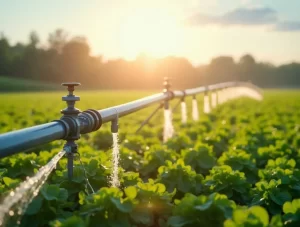
Top Innovations in Agricultural Pipe Fittings for Water Savings [2025]
Introduction to Agricultural Pipe Fittings and Water Sustainability Agricultural pipe fittings play a pivotal role in building efficient irrigation systems, crucial for modern farming practices. By exploring the versatility of

Expeart Tips from MDPE Pipe Fittings Manufacturers to Avoid Failures
Expeart Tips from MDPE Pipe Fittings Manufacturers to Avoid Failures Understanding MDPE Pipe Fittings: An Overview MDPE (Medium Density Polyethylene) fittings, used extensively in gas and water systems, offer strong,
Request a Free Consultation
Get personalized plumbing solutions with a free consultation from Fitwell.

